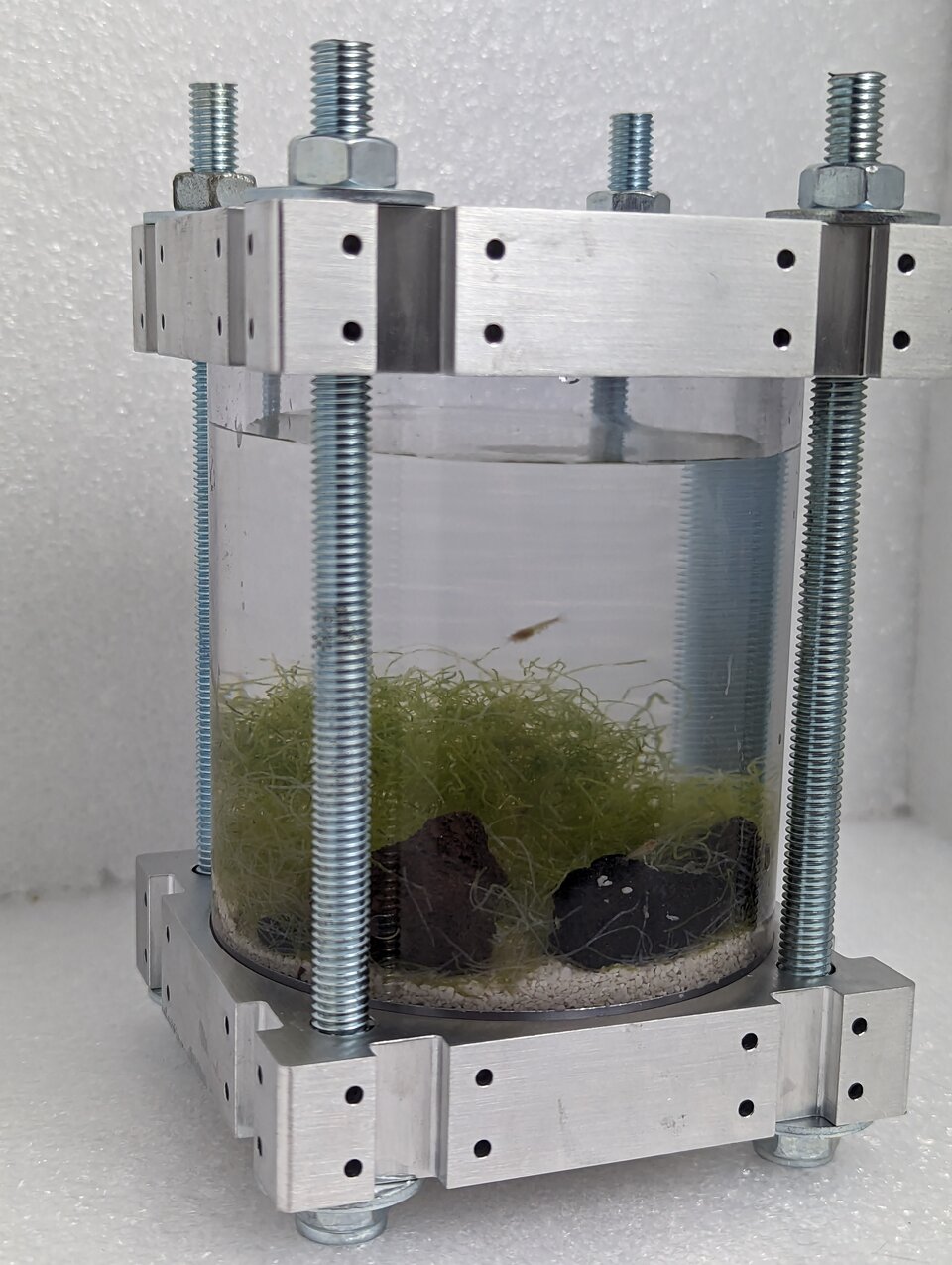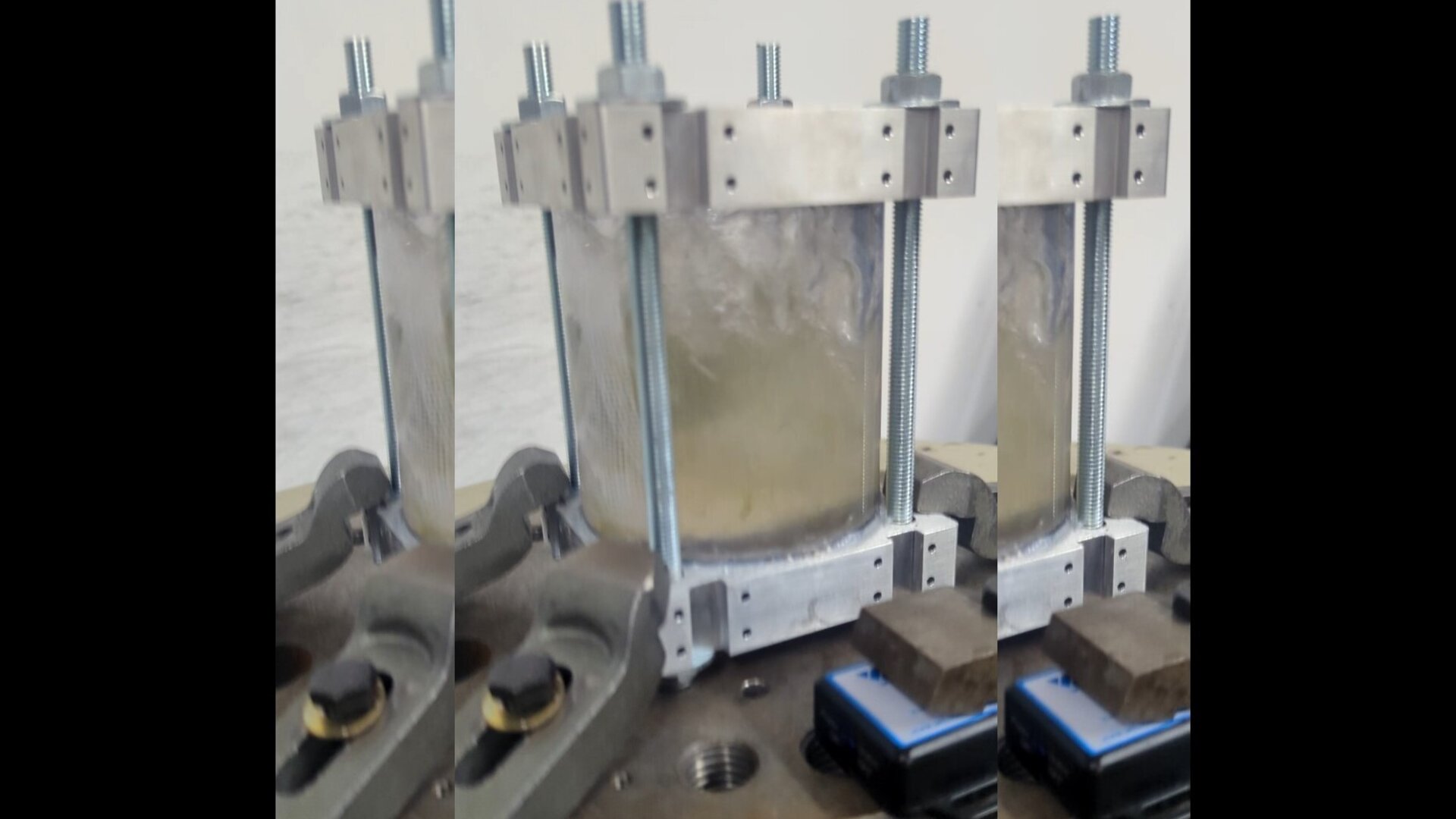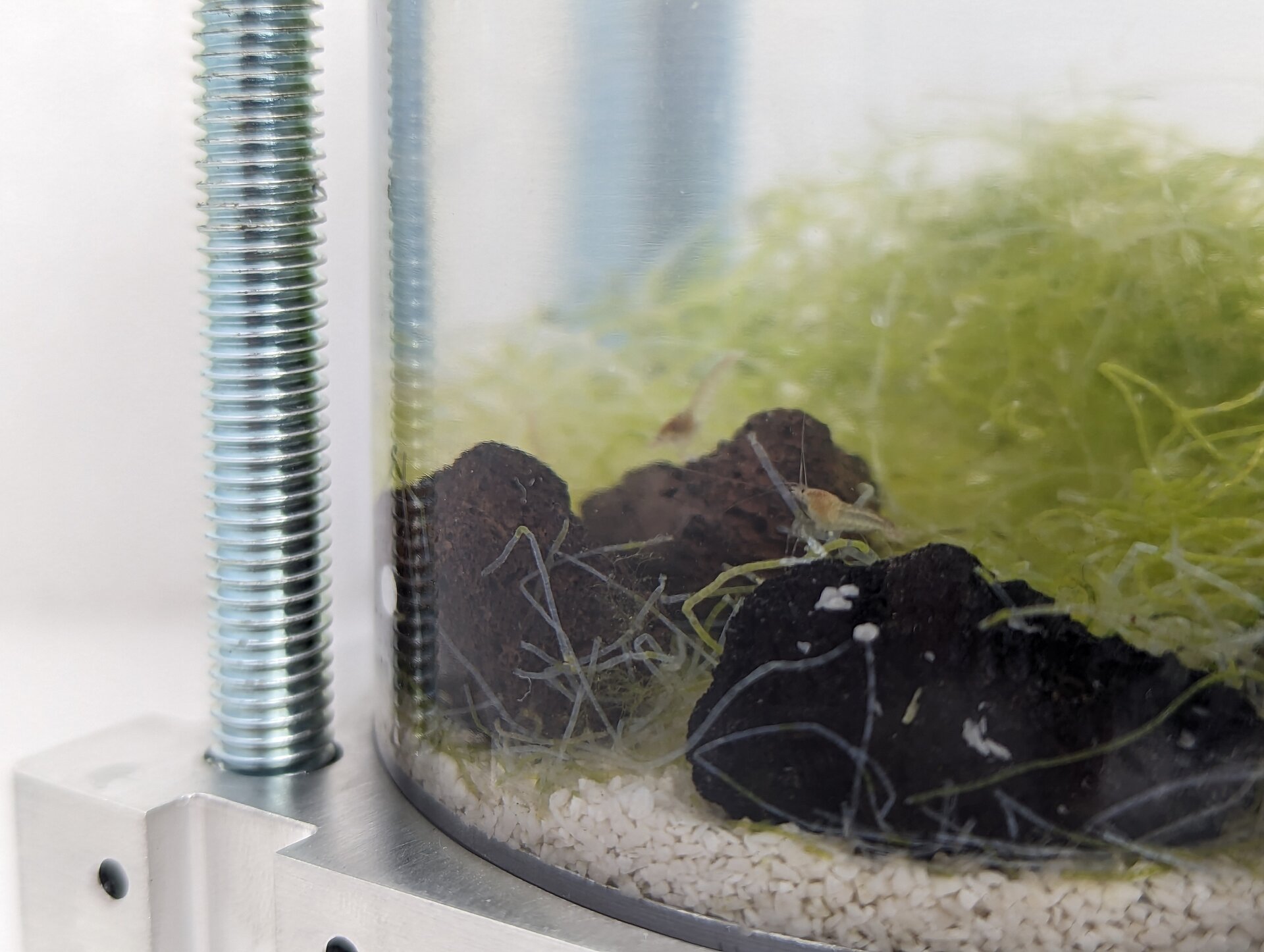Meet the team: SCAMPI
Team SCAMPI is a collaborative initiative bringing together students from various institutions across Europe and the US. Their mission is to send a payload to the ICE Cubes Facility aboard the International Space Station, where they will study the long-term effects of microgravity on an ecosphere containing shrimp and algae.

Institutions: Ecole Polytechnique, ISAE Supaero, Utrecht University, University of Arizona, The Spring Institute for Forests on the Moon
Team: Tarek Ben Slimane, Patrick Grove, Pietro Menichelli, Costanza Torchia, Alvaro Ropero, Jordan Carrico, Louis Sylvestre, Guillaume Soulier, Thomas Jegat, Samuel Evain, Amine El Amami, Mathis Buriasco
SCAMPI, Saltwater Crustacean Algae, Microbial Population Investigation, is a team of students at the bachelor's, master's, and PhD levels from across Europe and around the world. This multidisciplinary team includes varied interests and expertise from space ecology to microgravity fluid physics and innovating optical sensor technology. With the SCAMPI Project, the team hopes to validate that Earth ecosystems function nominally in microgravity. To accomplish this, the team will fly an aquarium containing shrimps to the ICE Cubes Facility aboard the International Space Station and will observe the impact of microgravity on ecosystem dynamics and the microbial community.

Previous research on the effects of space on living beings has focused on individual organisms. SCAMPI will be one of the first experiments to look at the comprehensive effects of space on an entire ecosystem comprising multiple levels in the food chain. Their model ecosystem is based on the “Ecosphere”, a self-sustaining micro-aquarium modelled after the ecosystems found in brackish water pools connected to the ocean in Hawaii. The aquarium payload will contain saltwater, crustaceans (including shrimp and other microinvertebrates), macro and microalgae, and many microbes. The researchers will monitor the Ecosphere remotely and collect data on the biotic (living) and abiotic (non-living) factors inside the system to understand how microgravity interacts with each. They will also develop a mathematical model of the Ecosphere to predict its behaviour.
The SCAMPI project is expected to launch in 2025 as part of the ESA Academy Experiments programme. This opportunity is offered through a collaboration between ESA Academy, ESA Human Spaceflight and Robotic Exploration directorate and Space Applications Services. The data collected from this experiment will help scientists design future closed ecological life support systems for long-duration space missions.
Follow the team’s updates at their webpage here: https://thespringinstitute.com/scampi/


Access the video














 Germany
Germany
 Austria
Austria
 Belgium
Belgium
 Denmark
Denmark
 Spain
Spain
 Estonia
Estonia
 Finland
Finland
 France
France
 Greece
Greece
 Hungary
Hungary
 Ireland
Ireland
 Italy
Italy
 Luxembourg
Luxembourg
 Norway
Norway
 The Netherlands
The Netherlands
 Poland
Poland
 Portugal
Portugal
 Czechia
Czechia
 Romania
Romania
 United Kingdom
United Kingdom
 Slovenia
Slovenia
 Sweden
Sweden
 Switzerland
Switzerland


























